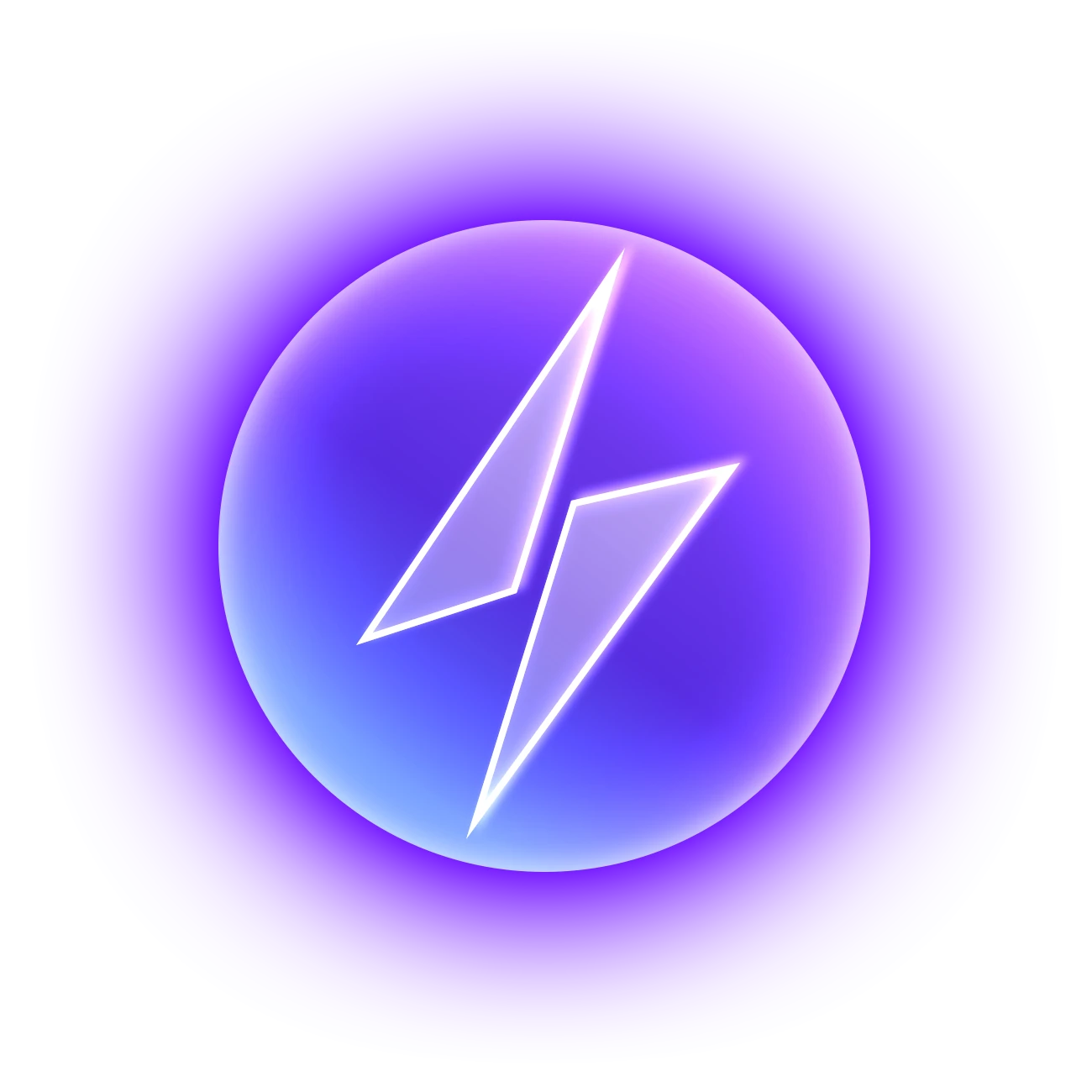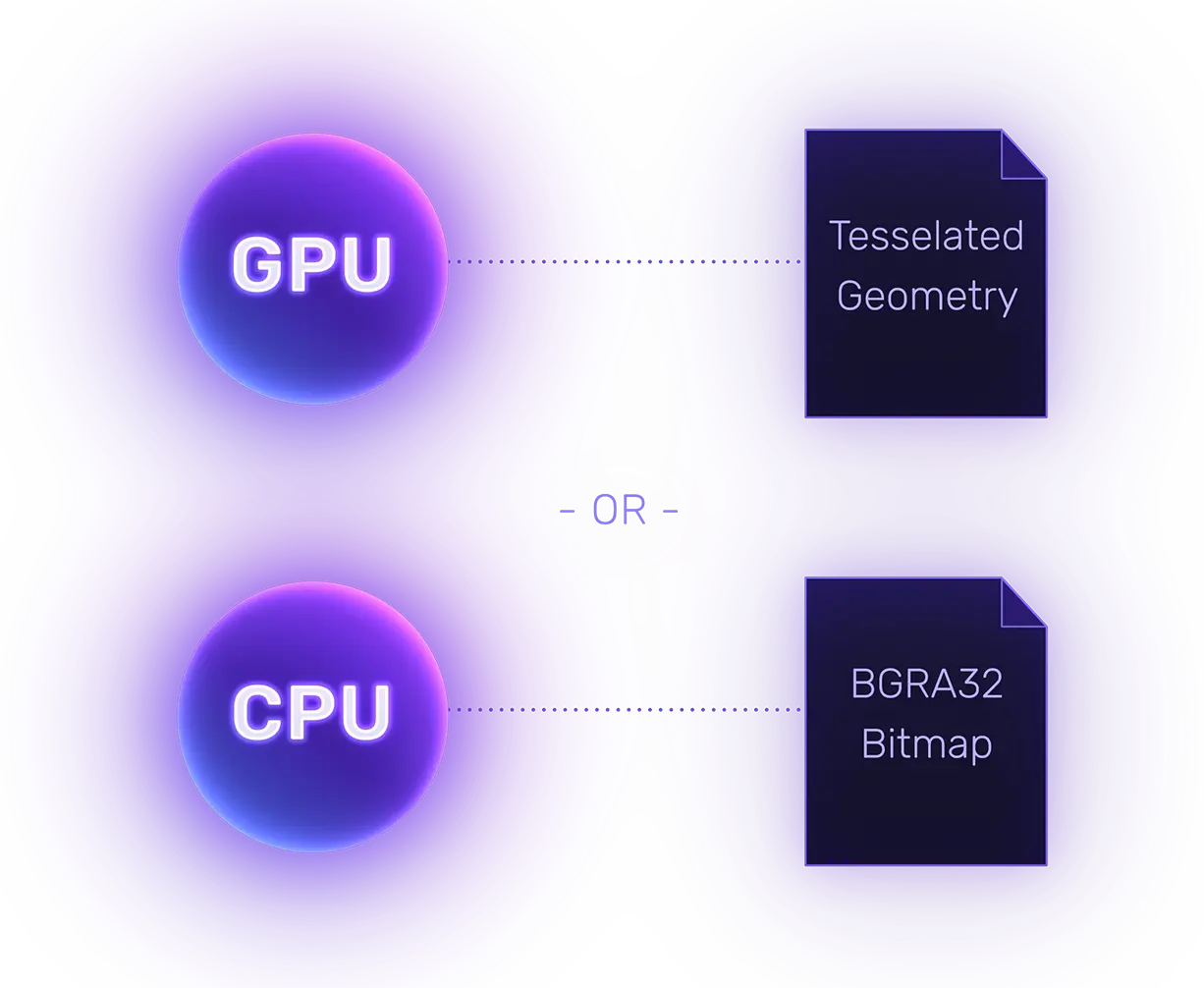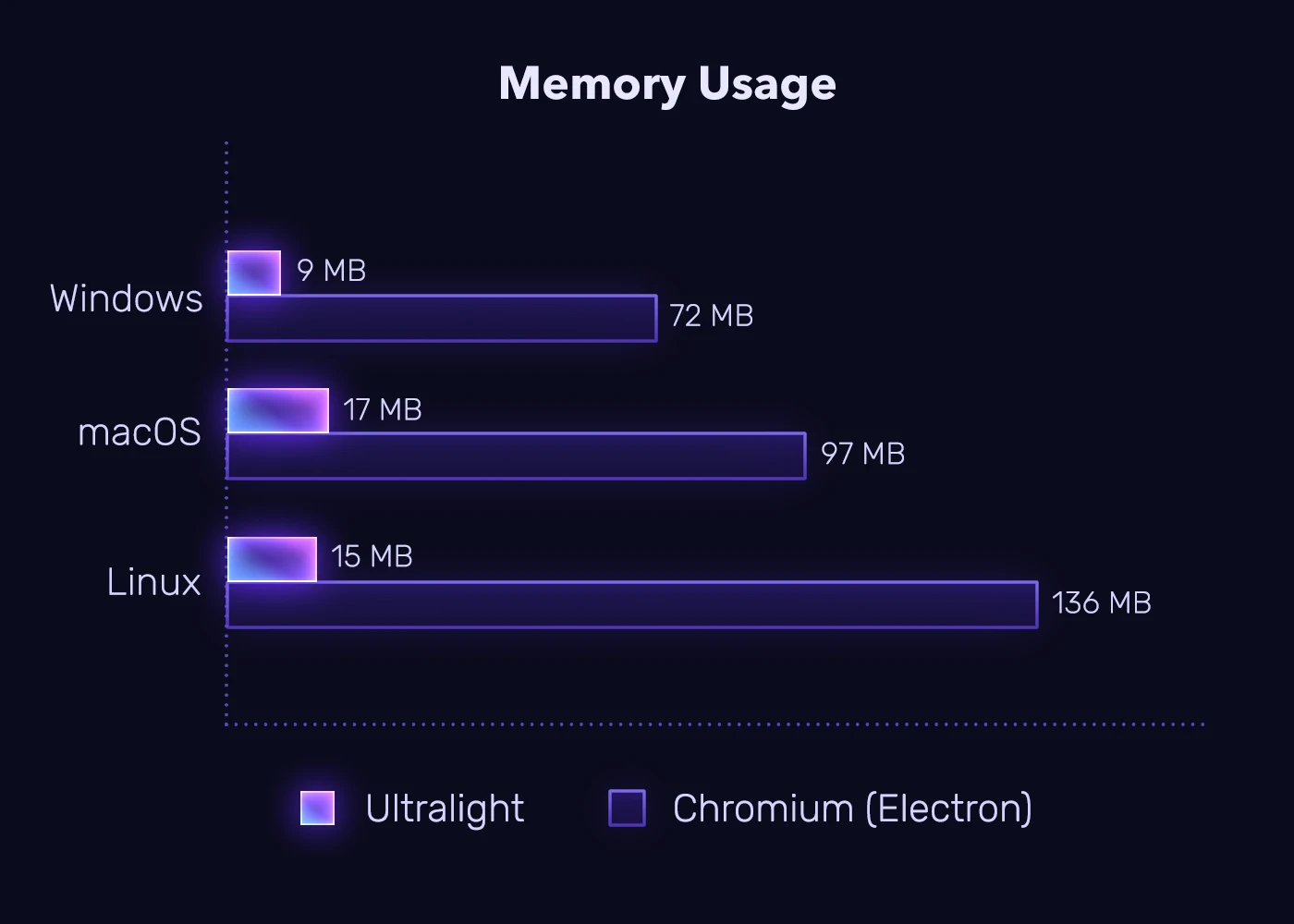
Ultralight
Universal, Pure-GPU HTML Renderer
Download SDK Read the DocsHTML + Games =
Ultralight is a GPU-accelerated toolkit to embed modern HTML in games and native apps.
Available for C and C++ on Windows, macOS, Linux, Xbox, PlayStation, ARM64 devices, and more.
Developed in collaboration with leading game studios, built GPU-first on a new, lightweight fork of WebKit.
Ultra-Fast.
Built GPU-first but can run on the CPU too!
Choose from two powerful, parallel renderers:
- GPU: Render directly on the GPU for maximum performance. Designed to integrate deeply with your existing rendering pipeline.
- CPU: Render parallel on the CPU for incredibly easy integration in any environment.

Ultra-Light.
Designed for the tightest resource budgets— Ultralight's baseline memory usage is nearly 10x lighter than Chromium.
Go further by customizing low-level platform and allocator behavior, gain insights about runtime resource usage, and more.

Ultra-Portable.
Built to run everywhere you run— optimized for desktop, game consoles, TVs, and embedded systems.
Currently available for Windows, macOS, Linux, PlayStation, Xbox, ARM64 devices, and more.
For Game Developers
Developed in collaboration with leading AAA game studios, Ultralight is tested and proven in even the most demanding environments.
Designed to integrate deeply with existing game engines and take full advantage of GPU acceleration on all platforms.
Game Integration GuideKey Features:
- Deep GPU Integration
- Use our GPUDriver API to render accelerated content directly within your existing renderer. Implementations available for Direct3D, Metal, and OpenGL.
- Transparent Rendering
- Take advantage of fully-transparent rendering to composite rich, antialiased web-content on top of existing in-game content.
- Custom Image Compositing
- Use our ImageSource API to display in-game textures, external image assets, or other custom content directly in styled web-page elements.
- Secure Asset Control
- Use our FileSystem API to load local file assets directly from your own pipeline. Lock down web requests by blocking URLs or by using your own CA certificate store.
For Native App Developers
Built for the ever-evolving needs of native app developers– Ultralight delivers lightweight, WebKit-based rendering to all desktop OSs (mobile coming soon!).
Integrate web-content seamlessly with your existing application structure or leverage our AppCore framework to do all the heavy lifting for you.
Native App GuideKey Features:
- Consistency Across Platforms
- Take the guesswork out of delivering apps across different platforms. Link to a specific version of Ultralight so your app runs consistently across environments.
- Automatic Window Management
- Use our AppCore API to automatically manage window creation, input, focus management, and GPU rendering on all major desktop platforms.
- JavaScript ⇔ Native Code Integration
- Ultralight is built on a new fork of JavaScriptCore. Deeply integrate JavaScript with native code— call native functions directly from JavaScript and vice-versa.
- Embed Assets In-Binary
- Use our FileSystem API and asset bundler to embed web assets directly within your application binary for added performance and security.
Trusted by industry leaders.







Frequently Asked Questions
We are the same team behind Awesomium (c. 2008), the first HTML engine for games and desktop apps (used by EA, Square Enix, QuickBooks, and many more).
In 2015, we made the bold decision to move off Chromium and rewrite the library with a focus on performance, portability, and ease-of-use. The result is Ultralight.
We launched a private beta in 2018 and have been working with leading game studios and tech companies to refine the technology ever since.
Ultralight currently supports the following platforms:
- Windows (x64)
- macOS (x64 / arm64)
- Linux (x64 / arm64)
- Xbox
- PlayStation 4
- PlayStation 5
Ultralight is a custom fork of WebKit / Safari and supports most modern web features with the exception of WebGL, WebRTC, and HTML5 Video/Audio (currently experimental).
There are a few other things missing which you can track here.
We recommend trying out the Browser (Sample #8) in the SDK to get an idea of what Ultralight is capable of today.
Yep! Ultralight uses the same JavaScript engine as WebKit/Safari.
If your engine supports dynamic textures, you can use it with Ultralight.
Our CPU renderer can render to an offscreen bitmap for upload to a texture (see Sample 7 - OpenGL Integration) or— if you need extra performance— the engine can render directly to the GPU using low-level driver commands.
See our game integration guide for more info.
We maintain official API for C++ and C.
Several awesome members of our community maintain bindings for C#, Java, Rust, and Go on top of our portable C API.
A portion of our WebCore source-code is available under LGPL on GitHub here.
Our full source code is proprietary but can be obtained with purchase of a commercial license.
Try Ultralight Today
Get the SDK and explore its capabilities today.
Download SDK Read the Docs